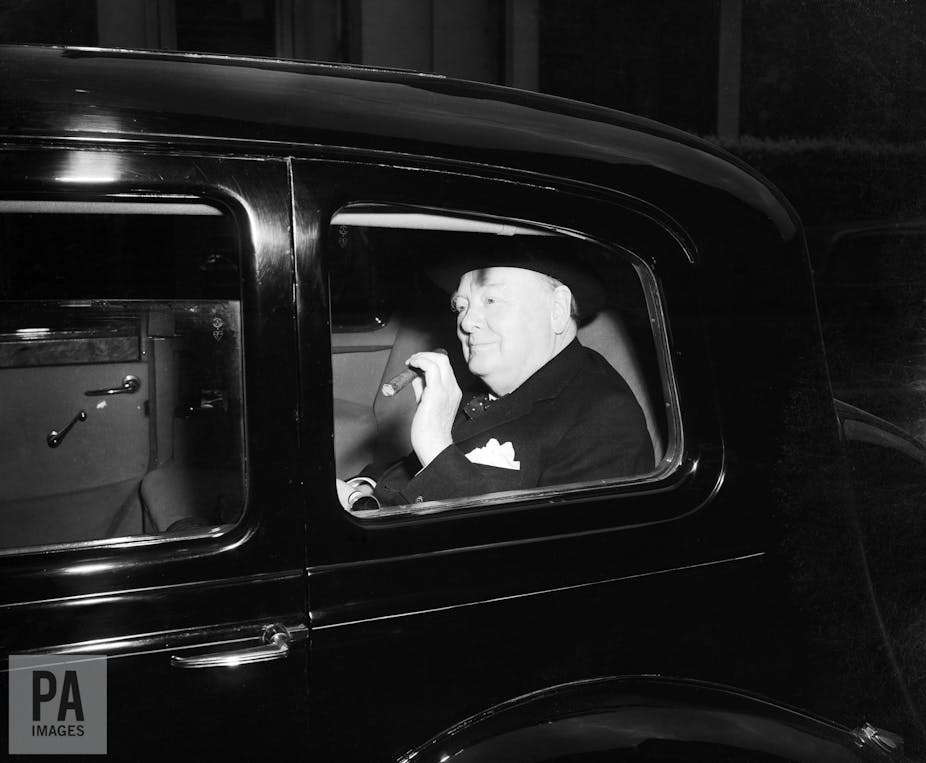History teaches us that the clash within Conservative ranks between populists and free-marketers may be decisive in shaping Conservative human rights policy after the election.
Earlier in 2017, it appeared likely that the Conservative party would make the UK’s withdrawal from the 1950 European Convention on Human Rights (ECHR) a centrepiece of its next general election campaign, despite pointed disagreement within party ranks.
The chief instigator was reported to be the prime minister herself. As home secretary, Theresa May had become so irate at the European Court of Human Rights in Strasbourg that she had called on the UK to leave the ECHR outright, expressing outrage that the treaty “binds the hands of parliament.” In February, she reaffirmed that the Conservative government aimed to replace the Human Rights Act, which enshrines the ECHR into British law, with a British Bill of Rights, one that “will remain faithful to the basic principles of human rights found in the original European Convention on Human Rights”.
So proponents of the UK’s continued participation in the ECHR were pleasantly surprised when May appeared to reverse course, at least temporarily. As her newly-minted manifesto stipulates:
We will not repeal or replace the Human Rights Act while the process of Brexit is underway but we will consider our human rights legal framework when the process of leaving the EU concludes. We will remain signatories to the European Convention on Human Rights for the duration of the next parliament.
Even so, other parts of the manifesto should give supporters of the Strasbourg court pause for thought. These passages, though not directly concerned with human rights law, announce a broader realignment of Conservative views on the relationship between the individual and the state. The manifesto says: “We must reject the ideological templates provided by the socialist left and the libertarian right and instead embrace the mainstream view that recognises the good that government can do.”

This has been widely interpreted as a repudiation of the free-market individualism of Thatcherism in favour of an affirmation of a strong positive role for the state in domestic affairs. In practice, the document retains longstanding Conservative calls for less regulations and taxes, while proposing an array of government interventions and subsidies in the domain of economic and social policy more sweeping than many of its predecessors.
“We do not believe in untrammelled free markets,” May announced when introducing the document in Halifax, Yorkshire. “We reject the cult of selfish individualism. We see rigid dogma and ideology not just as needless but dangerous.”
Removing controls on totalitarianism
My research suggests that a less libertarian tenor to Conservative economic and social policy has implications for whether a future Conservative government would take steps to limit the application of the ECHR in Britain. It could also lay the groundwork for an eventual withdrawal from the treaty.
If this is far from obvious today, it is due to longstanding misconceptions regarding the role of Conservatives in the ECHR’s origin. In the late 1940s, Conservative MPs Winston Churchill and David Maxwell Fyfe were at the forefront of campaigning for the establishment of a European human rights court in advance of the ECHR’s adoption by the Council of Europe in 1950. The common assumption among supporters, detractors, and scholars of the ECHR alike is that the two men were concerned with the menace of fascism and communism alone – and that their conservative views on domestic matters were irrelevant.
Fascism and communism were certainly at the forefront of their concerns. But another spectre loomed: that of socialist efforts to enhance state power at the expense of individual freedoms and an independent judiciary. It was the fierce attachment of Churchill and Maxwell Fyfe to free-market individualism that distinguished their vision of human rights from that of the left. Following the Conservatives’ loss in the 1945 general election, they feared the awesome powers of a British state whose reach had grown dramatically during the war, and was now at service of a Labour majority.
For Maxwell Fyfe, Britain’s adherence to the ECHR was meant to limit the ability of parliamentary majorities to enact legislation harmful to British human rights, which he understood to mean personal liberties, including property rights, rather than social rights. He conceived of a higher court that would have the power to declare acts of parliament in violation of the ECHR.
Undoubtedly, Churchill and Maxwell Fyfe would have found much to like in the 2017 Conservative manifesto. Even so, they would certainly have disapproved of its subordination of the individual to the collective, as well as May’s endorsement of a more populist vision of conservatism that rejects judicial constraints on parliamentary majority rule.
By announcing that “our responsibility to one another is greater than the rights we hold as individuals … because that is what community and nation demands”, the manifesto signals not just a rejection of Thatcherism. It also sounds the Conservative party’s retreat from a free-market libertarian critique of state power and tyranny of the majority. It was this that had fuelled Churchill and Maxwell Fyfe’s exceptional enthusiasm for Britain’s participation in the birth of a European human rights system with extraordinary controls on national executives and legislatures.

